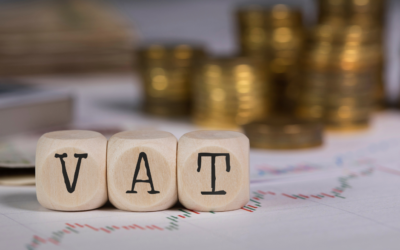Director-shareholder loan account issues

Loans or advances from a company can take a variety of forms. Sometimes director-shareholders borrow a specific amount outright as a short-term loan. More often it’s the informal transactions between a director-shareholder and the company, such as cash withdrawals to meet personal expenditure, or personal expenses directly paid by the company, that create borrowing. Where, overall, a director has borrowed more from the company than they have lent to it, the director’s loan account is said to be ‘overdrawn’. Such balances are usually cleared a few months after the year end when profits have been determined, by voting a dividend or paying a bonus.
Corporation tax charge
Where a loan is made by the company to a director who is also a shareholder in the company, there can be corporation tax implications for the company. The area is governed by what are called the ‘loans to participators’ rules. These mean that a corporation tax charge arises if a close company makes a loan to a participator, or an associate of a participator, if the loan is unpaid nine months and one day after the end of the accounting period. Most family companies fall into the category of close companies.
Definitions
- Close company: a company controlled by five or fewer participators, or by any number of participators who are directors.
- Associate of participator: this includes a relative, such as spouse/civil partner, parent, child or sibling.
- Participator: someone who owns share capital or voting rights in the company. Can also extend more widely to someone who is able to direct that company income or assets be applied for their benefit.
Excluded from this charge are loans to a close company director or employee where these don’t exceed £15,000, and where the borrower works full time for the company, but does not have a material interest (broadly 5% or more) in the company.
If the director-shareholder repays the loan balance within nine months and one day of the end of the accounting period, there is no charge on the company. Where such a loan is not settled within this window, the company is required to make a payment equal to 33.75% of the loan to HMRC. This is often referred to as a s455 tax charge.
Implications for director-shareholders
Quite separately from the issue of the s455 charge, a loan to a director-shareholder potentially stands to be treated as a taxable employment benefit. The tax position for the individual concerned therefore also needs consideration. If a loan is interest-free, or the interest charged is less than the official rate (2% from 6 April 2021) and the total amount of loan is more than £10,000 at any point in the tax year, this is known as a beneficial loan, and a charge to income tax arises. The charge is calculated at the official rate of interest (less any interest actually paid), and is reported on the P11D. The company pays Class 1A NICs on the cash equivalent of the benefit.
There are various strategies available for directors and shareholders to clear an overdrawn loan account and avoid the s455 charge crystallising. Our Tax Department can help assist you, to discuss alternatives possibly better suited to the current business climate. Please contact a member of the tax team on 028 8225 0253.
The above article is for general guidance and informational purposes only and is not intended to constitute legal or professional advice. It should not be taken as specific advice for your own circumstances and relied upon. You are advised to take professional advice before taking any action in relation to the above matters.
Recent Posts
- Director-shareholder loan account issues 28 March 2024
- McAleer Jackson My Journey Apprenticeship evening 23 November 2023
- Basis Period Reform 9 May 2023
- VAT Penalty Regime 21 March 2023



